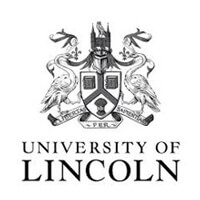fees waived
Biology, BSc (Hons)
University of Lincoln, United Kingdom
Ranking in UK
Biology
Biomedical Science
Biomedical Science
Costs
food & rent S$17.1K / year
Entry requirements
Scholarships
Unlimited quantity
Unlimited quantity
Unlimited quantity
Unlimited quantity
Limited quantity
Limited quantity
Information
Code
Code
Intakes
Website (External)
Programmes
Information
Duration
2029
The BSc (Hons) Biology degree at Lincoln offers a comprehensive exploration of biological sciences, enabling students to tailor their studies to personal interests. It emphasizes practical experiences, including UK residential field trips for studying wildlife in natural settings and an optional overseas field course in the final year. Students engage with a dynamic community in the School of Life Sciences, receiving research-oriented instruction from academics and participating in hands-on projects alongside experts.The curriculum begins with foundational topics in the first year, such as metabolism, evolution, ecology, and genetics. In subsequent years, students select from specialized modules including animal behaviour, immunology, biotechnology, and forensic anthropology, complemented by research methods training and an independent project. Assessment methods vary by module and may involve coursework, exams, portfolios, group work, or presentations, with guidance from faculty and peers. Note that module availability can change based on timetabling and staff research interests.
The first year of this degree introduces students to the different elements of biology, including metabolism, evolution, ecology and genetics. In the second year, students can choose to study modules including biomolecules, animal health and disease, animal behaviour, immunology, plant-animal interactions and conservation biology, alongside training in research methods. In the third year, students can select specialist modules including veterinary parasitology, genetics and bioethics, infection sciences, transfusion and transplantation, animal cognition, biotechnology, and forensic anthropology, in addition to undertaking an individual research project to develop independent investigation skills. For the most up to date module information, please visit the course page for this programme on our website. Timetabling arrangements may limit the availability of some optional modules to some students. As the options often reflect staff research interests, they may alter over time due to staff availability.
A local representative of University of Lincoln in Singapore is available online to assist you with enquiries about this course.

